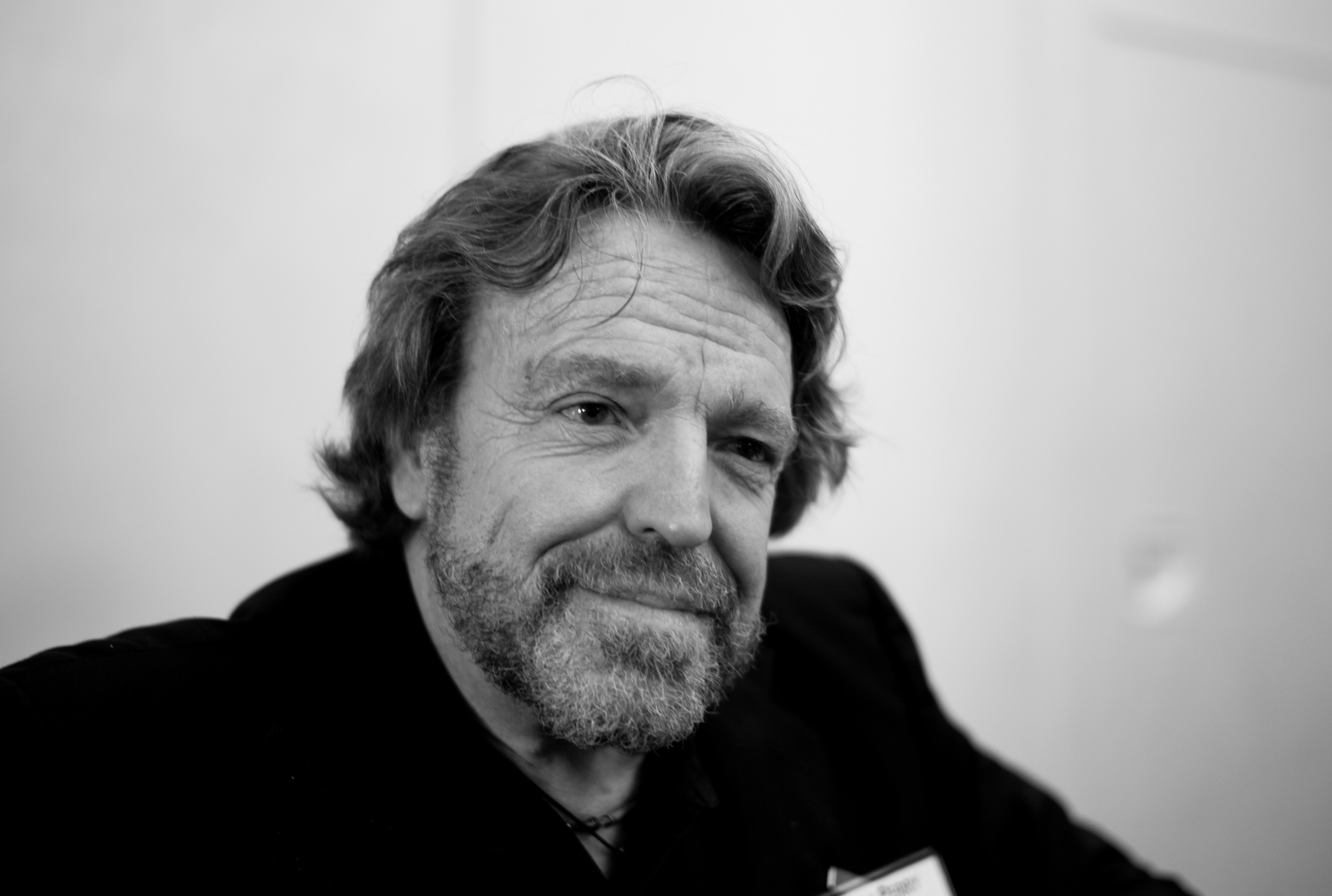Estimated Prophet: Remembering John Perry Barlow ’69

John Perry Barlow ’69, the self-proclaimed “junior lyricist of the Grateful Dead” and founder of the Electronic Frontier Foundation, passed away on Feb. 7, at the age of 70.
Barlow brought his psychedelic, free-spirited visions of society into every endeavor that he pursued. Many know him for his internet activism, writing, and songs like “Cassidy,” “Estimated Prophet,” “Feel Like a Stranger,” and “The Music Never Stopped.”
As a University student, Barlow studied Comparative Religion, joined Alpha Delta Phi, and served as student body president. When he graduated with a B.A. from the College of Letters, he had opportunities to attend Harvard Law School and write a novel for Farrar, Strauss, and Giroux. Instead, Barlow chose to travel to India and across the world, eventually arriving in Los Angeles for a screenwriting job.
Born and raised in Pinedale, Wyoming, Barlow grew up as a devout Mormon in a family of long-time Republican politicians, according to journalist Jesse Jarnow, author of “Heads: A Biography of Psychedelic America.” When Barlow’s parents deemed him a political liability, they sent him to boarding school in Colorado. During this time, he met Bob Weir, who would become his lifelong best friend and musical collaborator.
Throughout the 1970s and 1980s, he wrote lyrics for Bob Weir and his band, the Grateful Dead, while tending the needs of his family’s ranch as they aged. Immersed in the “Deadhead” following and culture that arose with the band’s success, Barlow worked alongside fellow songwriter Robert Hunter to create the lyrical foundation for the “religion” that was the Grateful Dead, seeking to create a realm devoid of ideology or intrusive authority.
This reflects Barlow’s own bizarre political leanings; he grew up Republican and even worked on Vice President Dick Cheney’s congressional campaign in 1978. However, his libertarianism drew upon his experiences from the counterculture movement of the late 1960s and the Deadhead community, leading him to become friends with Al Gore and others.
“I’ve been in redneck bars wearing shoulder-length curls, [and in] police custody while high on acid,” Barlow was quoted saying in “Heads: A Biography of Psychedelic America.”
This description of his lifestyle presents a common thread that runs through Barlow’s various ventures in Wyoming and beyond: a commitment to an anti-authoritarian libertarianism and a personal philosophy based on deconstructing centralized institutions.
This manifested itself in his work to promote internet freedom, Jarnow writes in his book. Despite minimal experience in engineering, Barlow co-founded the Electronic Frontier Foundation (EFF) in 1990. As the internet emerged in the 1990s, he fought for the protection of civil liberties and the maximizing of individual freedom on the Internet, publishing a variety of essays. This included “A Declaration of the Independence of Cyberspace,” a famous treatise calling for an Internet absent of governmental interference. He would later become a Fellow Emeritus of the Berkman Klein Center for Internet and Society at Harvard Law School, and eventually co-founded the Freedom of the Press Foundation, an organization committed to supporting adverse journalism in the 21st century.
As Steven Levy reported, Barlow continued to write articles on civil liberties in recent years, “becoming tight” with Edward Snowden and Julian Assange. He also starred in a number of Grateful Dead documentaries, all while living Wyoming hometown.
“[Barlow wanted] a world that all may enter without privilege or prejudice accorded by race, economic power, military force, or station of birth,” Jarnow wrote. “…a world where anyone, anywhere may express his or her beliefs, no matter how singular, without fear of being coerced into silence or conformity.”
After Barlow passed away, many who knew him spoke about their memories of him and the impact he had made on the world.
“This life is fleeting, as we all know—the Muse we serve is not,” Barlow’s friend Bob Weir tweeted. “John had a way of taking life’s most difficult things and framing them as challenges, therefore adventures. He was to be admired for that, even emulated. He’ll live on in the songs we wrote.”
“It is no exaggeration to say that major parts of the Internet we all know and love today exist and thrive because of Barlow’s vision and leadership,” Cindy Cohn wrote in the EFF’s statement regarding Barlow’s passing. “ He always saw the Internet as a fundamental place of freedom, where voices long silenced can find an audience and people can connect with others regardless of physical distance.”
While his medium shifted from psychedelic jams to internet posts, he nevertheless furthered his pursuit of an eccentric, anarchic freedom for all. A bedfellow of people on the left and the right, he traversed political and social realms like the jams of the band that he bolstered for decades.
To quote one of his signature tunes:
“Keep on dancin’ through the daylight / Greet the mornin’ air with song / No ones’s noticed, but the band’s all pack and gone / Was it ever there at all? / But they keep on dancin’!”
We will keep on dancin’ as you move onto your next adventure, Barlow. Rest easy.
John Henry Vansant is the son of two Deadheads. Email him at jvansant@wesleyan.edu or message him at @jhvansant3, especially if you want to talk about comparative religion or the Grateful Dead.








Leave a Reply